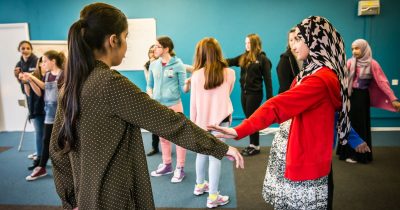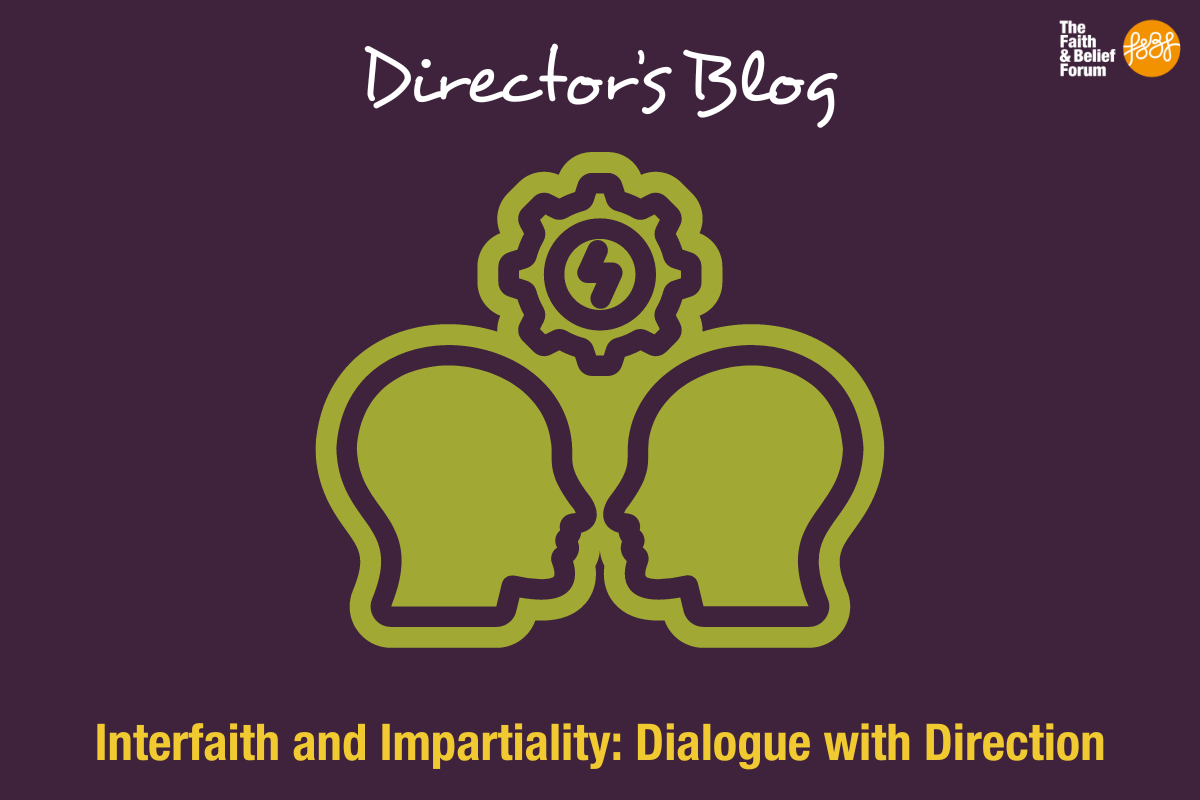
Challenging Faith Based Hate: True Stories
16 / 02 / 24
Menu

01 / 07 / 21

by Amy Ark
School Linking is all about building connections, bringing together children and young people from different faiths, beliefs, and cultural backgrounds. Students develop an understanding of the differing experiences of identity, diversity and community.
But how does this happen when you are in a pandemic and unable to meet family members and the school community outside of your ‘bubble’?
Well, it has certainly been a challenge that we and The Linking Network (the umbrella organisation for School Linking) have risen to! We have seen schools having to abandon collaborative, face to face, classroom teaching and being forced to turn to technology and teaching online. We were faced with the challenge of how to support schools and students to connect in a disconnected world. This challenge felt even more important at a time when a person’s world in one sense had become smaller, reduced to household bubbles, and in another sense bigger as we were part of the worldwide community, trying to make sense of the challenges of a global pandemic.
So how did we respond? With the support of The Linking Network, we developed Continuous Personal Development (CPD) training, online resources, and virtual approaches. The School Linking Programme was adapted to be more flexible to allow for in class or virtual exploration of the traditional key themes (identity, diversity and community), and questions of ‘who am I?’, ‘Who are we?’, ‘where do we live?’, and ‘how do we live together?’ Schools took part in ‘Link Encounters’ instead of ‘Link Days’. These encounters  took place as a series of shorter sessions and were a combination of in-class focused activities that led to a virtual link encounter with partner schools.
took place as a series of shorter sessions and were a combination of in-class focused activities that led to a virtual link encounter with partner schools.
We heard from our Linking Teachers that they felt that the key questions mentioned above, were even more relevant in the pandemic. There was now an opportunity to assess relationships; the world and community that we live in; and how this impacts our identity and our place in the world. We heard from teachers of the impact on mental health of their colleagues, students, and parents (as a parent of 3 children myself, I experienced this first-hand).
We were hearing from many of our teachers in school how important it was to open students back up to the world that they seemed to have been cut off from, even in a virtual space. Following careful planning, development and communication with our Linking schools over the autumn term, we felt confident that everybody was settling into the ‘new normal’ that was being talked of. We managed to sign up the target number of schools for the virtual training in January. However, the announcement of the sudden second lockdown in January threw our schools further into crises and sadly some of our schools were unable to continue with the programme in the spring term.
We made the decision to go ahead with the training to teachers in Birmingham, London and Hackney, and although we did not have the numbers that we would have had during pre-pandemic days, we had a group of teachers keen to explore approaches. In the months to come we had teachers’ feedback that they were using the Linking activities to connect students ‘bubbles’ from within their school. Some schools did also manage to link virtually. Just today I have had two schools send through lovely images of the student’s letters and pictures that they created and sent to their Link classes.
We have also had the opportunity to support schools to be innovative in their approach to Linking. For example, we supported a Jewish faith school in London to link their Year 9 students with their peers from six other faith schools in one-off interview style interactions. We have also supported one of our Linking schools to facilitate a ‘Dialogue not Debate’ project in which a group of five year 12 students explored ‘skills for dialogue’ as an approach to develop peer to peer methods of building up an understanding of identity, engagement, and dialogue.
It has been lovely to hear and see that our efforts have managed to make a difference to students and teacher practice in a very challenging year. The challenges are of course not over, schools are having to continue to isolate and close teaching bubbles, with some schools having to fully close as the numbers of infections are rising. We are acutely aware that there will be new obstacles ahead as everybody’s focus turns to the new academic year, but we have learnt so much about the ways in which we can adapt to ensure that our work remains relevant, supportive and impactful!

16 / 02 / 24

15 / 02 / 24

16 / 01 / 24